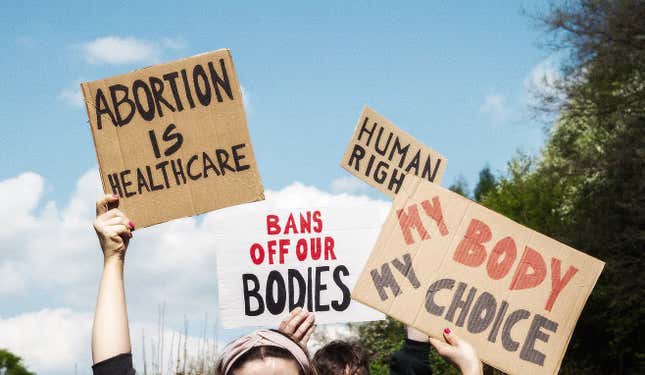More Women Join Lawsuit Saying Tennessee Abortion Ban Threatened Their Lives
Tennessee bans nearly all abortions, offering only a narrow exception for medical emergencies. These women say they were denied life-saving care anyway.


On Monday, the Center for Reproductive Rights (CRR) announced that four more women joined their lawsuit against Tennessee’s abortion ban. These new plaintiffs join three other women who say their health, safety, and lives were threatened by being denied emergency abortion care for unsafe pregnancies in Tennessee as part of Blackmon v. State of Tennessee, filed in September. Two of the new plaintiffs—Kathryn Archer and Monica Kelly—are currently pregnant and due to give birth in May and June respectively.
Tennessee bans abortion beginning at conception with exceptions only for endangerment to the life of the pregnant person, to preserve their health, or if the fetus isn’t viable. CRR argues that in practice, pregnant people experiencing these medical emergencies are still denied care as doctors have no sense of when these exceptions do and do not apply. Linda Goldstein, senior counsel at CRR who’s representing the plaintiffs, told Jezebel that Tennessee’s abortion laws are a source of “heightened anxiety” for Archer and Kelly amid their current pregnancies, after suffering through the trauma of being denied emergency abortion care by the state during their last pregnancies. “It’s that much more frightening to be pregnant in Tennessee,” Goldstein said.
Archer was 20 weeks pregnant with her second child when she learned her fetus suffered from severe fetal anomalies that included irregular brain development and improperly developed organs incompatible with human life. She was forced to travel to D.C. for an emergency abortion after being unable to get care in her home state. Meanwhile, Kelly was in her 12th week of pregnancy with what also would have been her second child when she learned her fetus suffered from Trisomy 13, a severe fetal condition, and that her fetus was unlikely to survive. Kelly’s doctors warned that continuing the nonviable pregnancy put her at risk of life-threatening infections, but she was still unable to get emergency abortion care in Tennessee and had to travel to Florida for the procedure. In a press release shared with Jezebel, Kelly said she was “inspired to join this lawsuit after hearing other women in the case speak out against the abortion ban that caused my family such grief and trauma.”
-

-

-

-

-

-

-

-

-

-

-

-

-

-

-

-

-

-

-

-

-

-

-

-

-

-

-

-

-

-

-

-

-

-

-

-

-

-

-

-








































